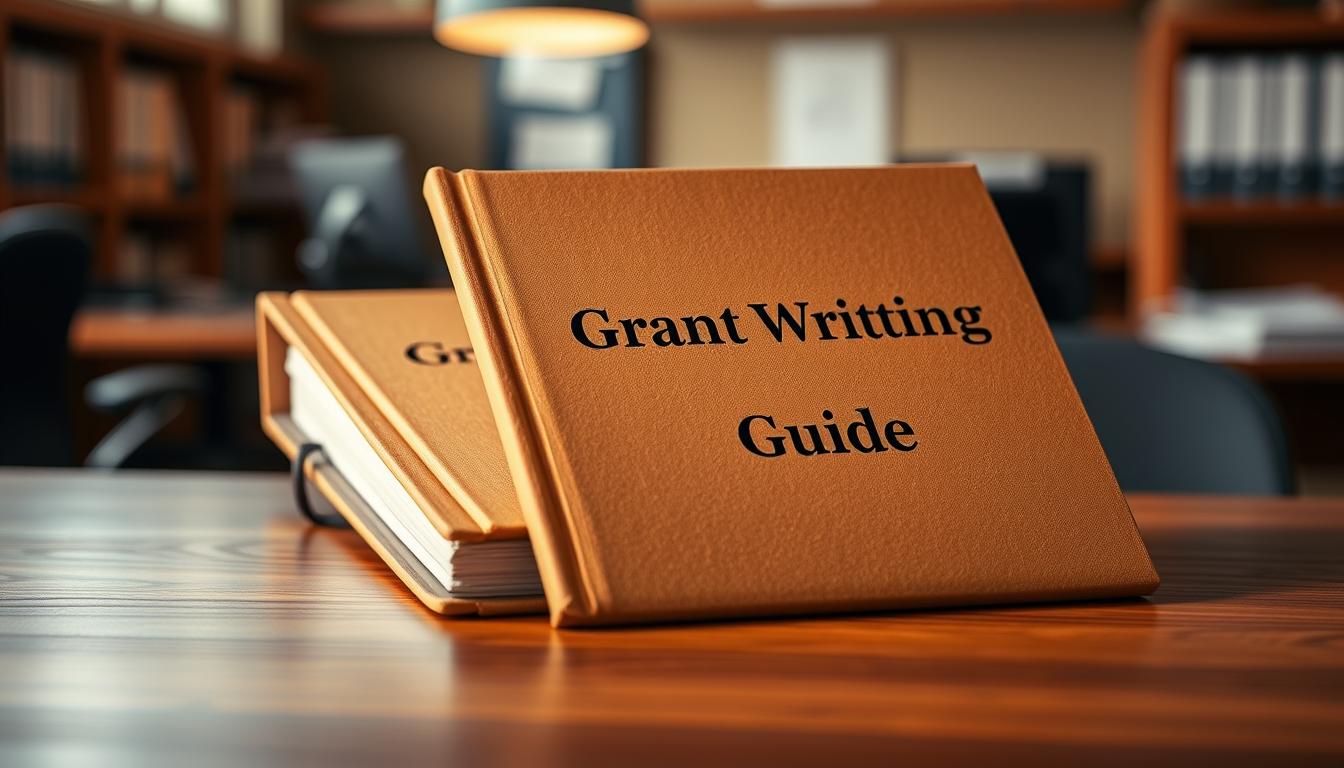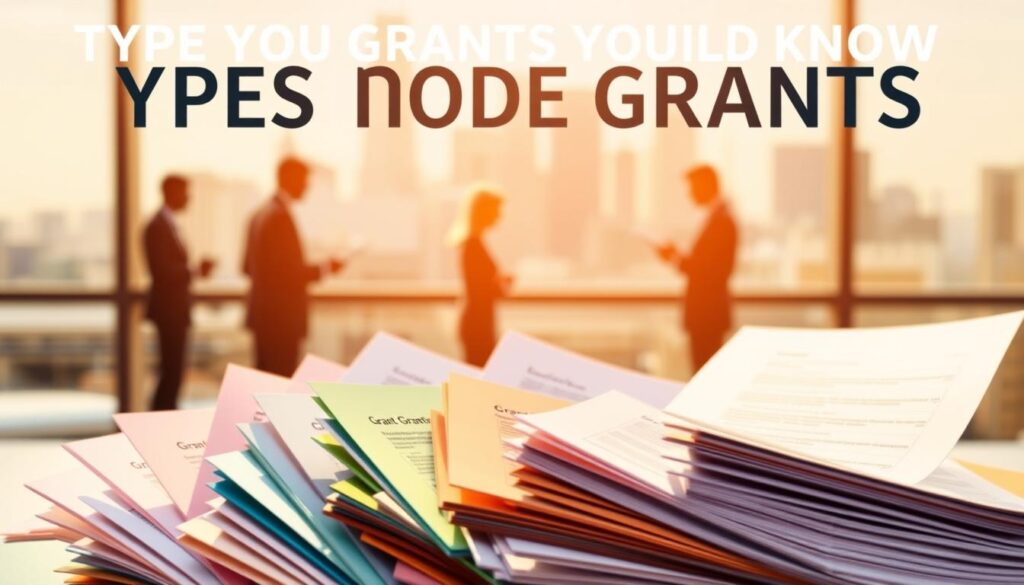Physical Address
304 North Cardinal St.
Dorchester Center, MA 02124
Physical Address
304 North Cardinal St.
Dorchester Center, MA 02124

Starting a career in grant writing is both rewarding and challenging. As a grant writer, you help non-profits, businesses, and individuals get funding for their projects.
A grant writing guide is key for those new to this field. It offers the tools and knowledge to write proposals that grab funders’ attention.
By following a step-by-step guide, you can learn the skills needed to excel in grant writing. This guide will show you how, from the basics to writing a winning proposal.
To succeed in grant writing, you need to know the basics. It’s a skill that helps organizations get funding by writing proposals.
Grant writing means researching and writing proposals to get funding. This funding usually comes from government agencies, foundations, and corporations. You must understand what the grantmaker wants and write a compelling story.
A grant writer is key in getting funding. They find grants, write and edit proposals, and check if everything is right. A good grant writer knows what the funder wants and writes accordingly.
“A well-written proposal can make all the difference in securing funding.”
Many organizations need grant writers to get funding. These include:
Good grant writing can really help an organization get funding. It can be the difference between getting the funding you need or missing out.
The need for skilled grant writers is growing. This is because more organizations are looking for funding in a competitive world. A recent report says, “The demand for grant writers is expected to grow as non-profits and businesses continue to seek funding opportunities.”
Grant writing is an art that requires a mix of skills. These include research, analysis, and the ability to write persuasively. To excel, grant writers need to be versatile and have a wide range of abilities.
Grant writers must be skilled in research to grasp the funder’s priorities. They also need to gather data that backs their proposal. Analyzing this data is key to making smart choices.
Grant writers should have top-notch writing and communication skills. They must be able to tell a compelling story and explain complex ideas clearly.
Using persuasive writing is crucial to grab the funder’s interest. It’s about knowing what the funder wants and shaping the proposal to meet those needs.
Grant writers often have to make technical info easy to understand. They need to grasp the subject well and simplify complex ideas.
Grant writing demands attention to detail to avoid mistakes and follow guidelines. Organizational skills are also vital for handling many projects and meeting deadlines.
Many wonder what education is needed for a career in grant writing. While a specific degree isn’t always necessary, a relevant education can boost your career.
Having a degree in English, Communications, or Non-Profit Management can help. Also, getting certifications like the Certified Grant Writer (CGW) or the Grant Professional Certified (GPC) shows you’re serious about the field.
If traditional education isn’t possible, self-study is a good alternative. Online courses and webinars offer great insights into grant writing.
Coursera, edX, and GrantSpace have online courses on grant writing. Webinars from professional associations also offer learning and networking chances.
There are many books and guides for those who like to learn by reading. “The Grant Writing Handbook” and “Grant Writing for Dummies” are top picks.
Starting a career in grant writing needs careful planning and hard work. First, you must get the right experience and learn the basics.
One great way to start is by becoming a volunteer. Many non-profits and charities need volunteers for tasks like grant writing. Volunteering lets you get real experience and meet people in the field.
Looking for internship opportunities is another smart move. You can find internships in non-profits, government, or private companies focused on grant writing. Internships give you practical skills and can open doors to jobs.
Getting entry-level positions in related fields is also a good option. Two roles stand out:
Working in nonprofit administration gives you a peek into grant writing. It also helps you make connections in the field.
As a development assistant, you’ll help with fundraising, including writing grant proposals. This role is a great way to move into grant writing.
By taking these first steps, you can build the experience and skills needed for a grant writing career.
Grant writing is a detailed process that needs focus and a clear voice. To do well, you must grasp the steps to get funding through grants.
The first step is to get the grant guidelines right. This means reading and understanding what the funding group wants. It’s important to pay attention to details like deadlines, who can apply, and how to submit.
A good story is key to a successful grant proposal. It’s about sharing your organization’s story and showing the need and impact of your project.
Your story should be real and interesting. It should show your mission, values, and work. Use simple, clear language to share your story in a way that connects with the reviewers.
It’s important to explain why your project is needed and its potential impact. Use facts and figures to back up your points. Show how your project will change things for the better.
A good budget is crucial for any grant proposal. It should be realistic, detailed, and match your project’s goals. Make sure your budget covers all costs and explain each item clearly.
By mastering these parts of grant writing, you can boost your chances of getting funding for your organization.
Understanding the different types of grants is key. Grants fall into three main categories: government grants, foundation grants, and corporate grants. Each has its own features and application steps.
Government grants come from federal, state, or local governments. They are often competitive and have strict rules to follow.
Federal grants fund a variety of projects. This includes scientific research and community development. The National Institutes of Health (NIH) and the National Science Foundation (NSF) are examples.
State and local governments also offer grants. These support projects like infrastructure, education, and healthcare in their areas.
Foundation grants come from private or community foundations. These foundations focus on areas like education, healthcare, or the arts.
Corporate grants are part of a company’s social responsibility. They can be cash, goods, or services.

A well-crafted grant writing portfolio can boost your career in the nonprofit sector. It shows your skills, experience, and the impact of your work.
Start by documenting your successes. Keep a record of grants you’ve written, including the amount and project outcomes. This will help show your capabilities to potential clients.
Creating sample proposals is key. Even without real grants, you can make hypothetical examples. These show you know grant writing and can tell compelling stories.
Gathering client testimonials boosts your portfolio’s credibility. Ask previous clients for a recommendation based on your work together.
When asking for recommendations, give clients project details and your role. This helps them give a precise and detailed testimonial.
Include metrics or statistics to quantify your impact. This could be the funding you’ve secured or the number of successful grants.
By following these steps, you can build a strong grant writing portfolio. It will showcase your expertise and attract new opportunities.
Finding the right grant writing job takes research, networking, and persistence. You need to know where to look and how to show yourself to potential clients.
Start by using job boards and websites focused on grants. GrantSpace and GrantWatch list many opportunities. Also, check general sites like Indeed and LinkedIn with keywords like “grant writer” or “grant writing.”
Freelance sites are another good place to find work. Upwork and Freelancer often have grant writer jobs. Make sure your profile shows off your skills and experience.
Direct outreach means contacting organizations directly. This can be a good way to find opportunities.
Make a targeted pitch that shows your experience and value. It’s important.
After sending your pitch, follow up well. A polite email can keep you in their thoughts.
By using these strategies, you can find grant writing jobs that fit your skills and goals.
Building a strong network is key to success in grant writing. By connecting with others, grant writers can share knowledge and find new opportunities. They also stay updated on the latest trends.
Joining professional associations is a great way to network. Two top organizations are:
The Grant Professionals Association (GPA) offers training, certification, and networking events to its members.
The American Grant Writers’ Association (AGWA) supports grant writers with resources like webinars and conferences.
Going to conferences and workshops is another good way to network. These events let you learn from experts and meet peers.
They help grant writers stay informed and build relationships with colleagues.
Starting your grant writing career needs careful planning and smart choices. A good plan helps you deal with the challenges of grant writing. It also helps you reach your career goals.
Figuring out your rates and fees is key. Look at what others charge and think about your costs. Your rates should show your skill and knowledge. For tips on being a freelance grant writer, check out this resource.
Grant writers can work full-time or freelance. Full-time jobs offer stability and benefits. Freelancing gives you flexibility and can pay more. Think about what you want for your career and life.
As you grow in your career, you’ll find new chances to advance. You can specialize in certain grants, like government or foundation ones. Or, you could move up to lead teams or run nonprofits.
Being good at one type of grant can attract more clients. For example, knowing government grants well can lead to work with government agencies.
With time, you can become a leader. You might manage teams or help set a nonprofit’s direction. This uses your grant writing skills to help the whole organization succeed.
Grant writing comes with its own set of hurdles. It requires a lot of resilience and the ability to adapt. Many grant writers face similar challenges that can affect their success.
One big challenge is dealing with rejection. Not every proposal gets funded. It’s important to develop a thick skin. To overcome this, focus on building a strong grant writing portfolio and keep improving your skills.
For more insights on grant prospecting challenges, visit Instrumentl’s blog on grant prospecting challenges.
Grant writers often have to work under tight deadlines. Time management is key. Creating a grant calendar can help you stay organized and submit on time.
Different funders have their own rules. It’s crucial to be flexible. Creating flexible templates can save time and reduce stress. This means having a basic proposal template that you can adjust for different funders.
By making modular proposal components, you can easily change your applications for different funders.
A grant calendar helps you keep track of deadlines and milestones. It ensures you’re always ready for the next application cycle.
Starting a career in grant writing can be both rewarding and challenging. By learning the key skills, education, and strategies in this guide, you’re on your way to success.
As you begin, focus on building a strong portfolio and networking. Staying current with trends is also key. Whether you work as a freelancer or a full-time grant writer, the possibilities are endless.
With hard work, dedication, and a desire to learn, you can excel in grant writing. This will help you secure funding for important projects. Take the first step today and start your journey to success in grant writing.